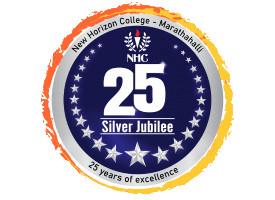BLOGS
What Can I Do After B.Com?

BCom stands for Bachelor of Commerce. It is a three-year undergraduate program specialising in accounting, financing, and other commerce subjects. Students from any stream in the 12th grade can opt for a BCom degree. It is a favorite among students since the syllabus is manageable and offers a decent package and a satisfactory job. The specializations that one can explore in BCom are diverse and multiple, opening doorways into discrete sectors.
10 Best Things You Can Do After B.Com.
Upon getting a BCom degree, students can explore widespread opportunities. Below are ten such options. Do not rush; choose the one that aligns with your interests and the demand in the job market.
1. Get work experience at a bank.
Along the way, you would have studied the dynamics of banking. The knowledge and skills you pick up will help you get into banking. Try to find internships and entry-level positions to develop skills in financial management, customer service, etc. This will give you insights into the operations of the banking sector and will help you build a career in finance. Now and then, government and private banks release notifications to fill up banking positions worth considering. This firsthand experience will set you apart from others in the job market.
2. Get work experience at an accounting firm.
Accounts is a core subject in the BCom course. Hence, with this knowledge, students can either do internships or a full-time job in an accounting firm to gain practical knowledge and hands-on experience. Working with professionals will facilitate acquiring knowledge and building professional relationships. Financial reporting, auditing, and budgeting skills obtained through experience will make you more confident. After a good amount of experience in this sector, the chances of getting hired by big companies with good pay packages are high.
3. Get work experience at a corporation.
You may have the best theoretical knowledge. But to thrive in this competitive world, practical knowledge is a must. Nothing is better than a corporation to gain practical experience. The corporate setting exposes you to all relevant skills, such as communication, confidence, leadership, discipline, and more, which are paramount in building a solid career path. You will see an overview of how businesses run, the decision-making process, how the different departments collaborate to achieve common goals, etc.
4. Get the FMVA designation.
Through Financial Modeling and Valuation Analyst (FMVA) certification, you learn to apply academic knowledge about finance practically. Technical and practical financial modelling skills are taught, adding value to your resume. This certification is recognized worldwide and thus increases job opportunities, career growth, and earning potential. It demonstrates that you are well aware of how to evaluate finances, predict financial performance, and are ready to make some important financial decisions.
5. Go back to school for your MBA.
If you want to get into a further specialization, then there is a Master of Business Administration. It runs for two years with majors in marketing, human resources, finance, business management, etc. These, however, train some essential skills like leadership, decision-making, and critical thinking that are extremely useful in a professional environment. You get to network with professionals through various projects and internships. There is a great demand for MBA graduates with high-prospect jobs and good earning potential.
6. Earn an online certification in financial modeling.
A financial modeling course teaches how to predict a company’s future financial performance using accounting and financial data. These courses aid in making informed decisions, comparing with peers, and improving a company’s profitability. Such certifications boost your resume because of your experimental skills and make you a strong candidate in the job market.
7. Get an accounting designation (CPA or CA).
Chartered accountants (CAs) and certified public accountants (CPAs) are highly reputed and rewarding professional careers. They mainly deal with auditing, accounting, financial reporting, taxation, etc. These designations offer higher salaries, numerous opportunities globally, and long-term career advancement. Within a few years of experience, you will become eligible to hold top finance and accounting positions in a firm.
8.Company Secretary (CS)
It is a senior-level position in corporations. A CS is in charge of ensuring corporate governance and legal compliance. He gives directions to the board members on legal and financial matters. CS is also involved in auditing companies’ tax returns, evaluating directors’ performance, and carrying out many other functions. It is an enriching career that attracts high salaries and makes you a highly valuable person.
9. Certified Financial Planner
A certified financial planner helps clients plan their finances, such as retirement, insurance, taxes, investments, etc. He or she is a financial advisor who helps clients achieve financial goals and makes decisions in the best interest of clients. A certification opens doors to engaging with clients directly and building trust, leading to a strong network and increased credibility. Certification adds value to your resume and gives you a competitive edge.
10. Competitive Exams After BCom
Numerous competitive exams require a primary degree as a minimum qualification to appear. The central government releases vacancies in many departments and conducts exams like the UPSC, SSC, and banking. These highly reputed jobs offer decent pay and ensure job security. The respective state governments also conduct examinations to fill their departments’ vacancies.
Thank you for reading our blog! We hope you found the information helpful and engaging. Don’t forget to explore our latest blog What Is BCom? for more insights. As one of the best bcom colleges in bangalore, we offer a variety of programs designed to enrich your child’s learning experience. You can explore our website to find all the details about our school and the various programs we offer. Happy reading!
Wondering what to do after B.Com? From higher studies to job avenues, there are plenty of choices. Compare these options with insights from high-income skill careers and commerce degree prospects. For a strong academic base, explore the best bcom colleges in bangalore or look into leading degree colleges in bangalore.
Frequently Asked Questions (FAQs)
1. What is the best job for BCom graduates?
The best job for BCom graduates depends on many factors, like an individual’s passion, goals, and finances. A chartered accountant or certified public accountant career will suit you if you are interested in accounting. If you desire job security, government exams are the best way to ensure it. Being a financial planner or company secretary is an excellent opportunity to advance your career if you are good at finances and planning.
2. Who gets paid more, BCom or BBA?
When comparing the salaries of a BCom and a BBA graduate, many factors come into play, such as specialization, company, and job location. Generally, BCom graduates draw higher salaries because of the vast opportunities in advantageous and globally recognized sectors like accounting, finances, business management, etc. But it comes down to an individual’s skills, experience, and hard-working nature.
3. Can I do Bcom without math?
Mathematics is not compulsory for admission to a BCom degree but is generally mandatory in BCom courses. A few colleges and universities do not include math. However, studying mathematics helps in future jobs requiring computational and problem-solving skills.







